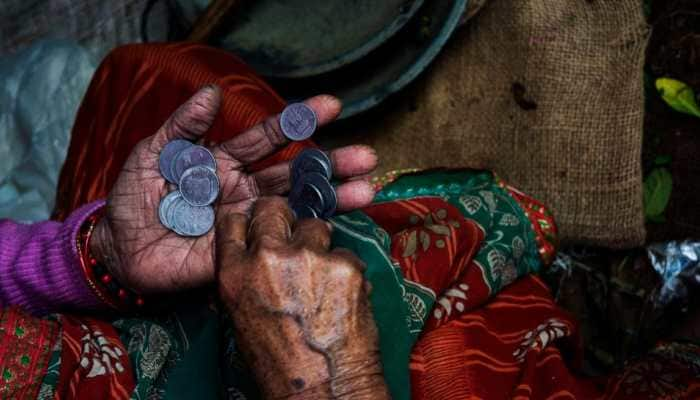Monkeypox virus outbreak: Over 18,000 cases globally, most in Europe; WHO asks at-risk men to 'reduce number of sexual partners'
More than 70% of monkeypox cases have been reported from the European Region, and 25% from the Region of the Americas, the WHO said.
Trending Photos
) REPRESENTATIONAL IMAGE
REPRESENTATIONAL IMAGE Monkeypox virus outbreak: The World Health Organization (WHO) on Wednesday (July 27, 2022) said that there have been more than 18,000 cases of monkeypox reported globally from 78 countries, with the majority in Europe, and asked the at-risk men to "reduce their number of sexual partners".
At a media briefing, WHO Director-General Dr Tedros Adhanom Ghebreyesus said that so far, 98% of monkeypox cases outside the countries in Africa where the virus is endemic have been reported in men who have sex with men. He urged that group to consider reducing the number of new sexual partners and swapping contact details with any new partners.
"More than 18,000 cases of monkeypox have now been reported to WHO from 78 countries, with more than 70% of cases reported from the European Region, and 25% from the Region of the Americas," he said.
"So far, five deaths have been reported, and about 10% of cases are admitted to hospital to manage the pain caused by the disease," Tedros added.
Monkeypox virus outbreak can be stopped
The WHO chief said that the monkeypox virus outbreak can be stopped, if countries, communities and individuals inform themselves, take the risks seriously, and take the steps needed to stop transmission and protect vulnerable groups.
"The best way to do that is to reduce the risk of exposure. That means making safe choices for yourself and others. For men who have sex with men, this includes, for the moment, reducing your number of sexual partners, reconsidering sex with new partners, and exchanging contact details with any new partners to enable follow-up if needed," Dr Tedros Adhanom Ghebreyesus said.
The #monkeypox outbreak can be stopped if countries, communities and individuals inform themselves, take the risks seriously, and take the steps needed to stop transmission and protect vulnerable groups.pic.twitter.com/7CumPFyPhc — Tedros Adhanom Ghebreyesus (@DrTedros) July 27, 2022
.@WHO media briefing on #monkeypox, #COVID19 and other global health issues https://t.co/iuPt8yozf1 — Tedros Adhanom Ghebreyesus (@DrTedros) July 27, 2022
The focus for all countries must be engaging and empowering communities of men who have sex with men to reduce the risk of infection and onward transmission, to provide care for those infected, and to safeguard human rights and dignity, he added.
How worried should we be about monkeypox global health emergency?
The rapidly spreading monkeypox outbreak constitutes a global health emergency, WHO director-general declared last week. First identified in monkeys, the virus is transmitted chiefly through close contact with an infected person.
Until this year, the viral disease has rarely spread outside Africa where it is endemic. But reports of a handful of cases in the United Kingdom in early May signalled that the outbreak had moved into Europe.
How dangerous is monkeypox disease?
Monkeypox is a virus that typically causes mild symptoms including fever, aches, and pus-filled skin lesions. People tend to recover within two to four weeks, according to the WHO.
Anyone can spread the virus, but the current outbreak outside of Africa is concentrated almost exclusively among men who have sex with men.
Monkeypox spreads primarily via intimate skin-to-skin contact, usually with someone who has an active rash, as well as via contact with contaminated clothes or bedding. It is not as easily transmitted as the SARS-CoV-2 virus that spurred the COVID-19 pandemic.
"COVID is spread by the respiratory route and is highly infectious. This doesn`t appear to be the case with the monkeypox," said Dr Martin Hirsch of Massachusetts General Hospital.
The risk of monkeypox is moderate globally, except in Europe, where the WHO has deemed the risk as high.
Why is monkeypox outbreak an emergency?
Health officials from several countries had urged the WHO to label monkeypox a public health emergency of international concern due to the quick escalation of cases and concerns it may become endemic in more countries.
The emergency declaration aims to spur global action and collaboration on everything from testing to the production and distribution of vaccines and treatments.
The fatality rate in preceding monkeypox outbreaks in Africa of the strain currently spreading has been around 1%, but so far this outbreak appears to be less lethal in the non-endemic countries, many of which have stronger healthcare infrastructure.
Scientists are trying to determine what caused the initial spate of cases and whether anything about the virus has changed. Increased global travel as well as climate change have generally accelerated the emergence and spread of viruses, experts say.
Infectious disease experts say that years of financial neglect have left sexual health clinics - who are on the frontline of the current monkeypox response - ill-prepared to curb the further spread.
How stay safe from monkeypox virus?
Health officials say that people should avoid close personal contact with someone who has an illness presenting with a distinctive rash or who is otherwise unwell. People who suspect they have monkeypox should isolate and seek medical care.
Health officials have also been offering monkeypox vaccines to high-risk individuals and those that have recently been in close contact with an infected person.
Danish company Bavarian Nordic An older vaccine, currently made by Emergent Biosolutions, is called ACAM2000, but its uptake has been limited due to a severe side-effect warning.
Bavarian Nordic says it can produce 30 million doses of its vaccines - including the monkeypox one - each year and has tapped a U.S.-based contract manufacturer to increase monkeypox vaccine capacity.
Is there a monkeypox treatment?
Monkeypox symptoms often resolve on their own within weeks. Patients may receive extra fluids and additional treatment for secondary bacterial infections.
An antiviral agent called tecovirimat - branded as TPOXX and made by SIGA Technologies - has U.S. and EU approval for smallpox, while its European approval also includes monkeypox and cowpox.
(With agency inputs)
Stay informed on all the latest news, real-time breaking news updates, and follow all the important headlines in india news and world News on Zee News.
Live Tv







)
)
)
)
)
)
)
)
)
)
